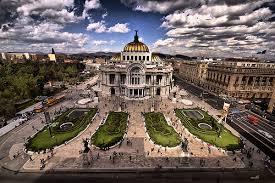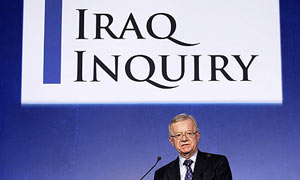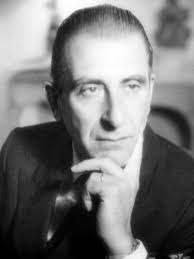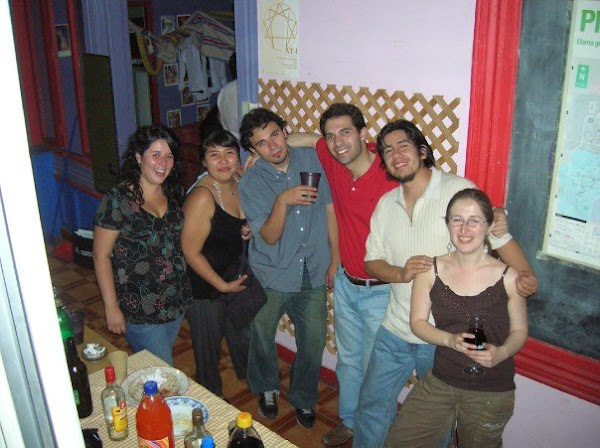This post is only to recommend the article titled: "Un futuro para México", by Jorge Castañeda and Héctor Aguilar Camín, published by Nexos in November 2009. Here is the link.
It is a very comprehensive account on the political, economic and social transformation necessary to bring about change in Mexico. Consolidation of the democratization, transformation of the economic structure, opening of its economy and warranting of individual security and freedom are some of the advices.
Monday 28 December 2009
Thursday 24 December 2009
Iraq inquiry continues
As the Iraq inquiry continues, more evidence becomes available for the public to discuss. The Iraq inquiry, an independent commission charged with reviewing the evidence, procedures, decissions and responsabilities on the running up of the Iraq war, has continued with its work as more decision-makers related to the invasion are declaring before it.
As this article by The Guardian shows, there is already sufficient evidence to raise some serious questions over the planning, reasoning and real motives behind this terrible acts.
This commission could lead to important political, if not legal, consequences for those involved. Specially relevant could be the eventual responsability of former Prime Minister Tony Blair and his closer advisors, because this could shed a shadow on the legacy of the so-called Third Way, which Tony Blair help to develop and construct.
Monday 21 December 2009
Capitalism disenchantment
John Gray, in an artible published by the magazine New Statesman, claims that neoliberalism (and socialism for that matter) are ideologies of the 20th century unfitted for the world of the 21th century.
The article takes a very critical view of the way neoliberal capitalist organization creates anregulated and unsustainable economic growth.
For those that agree with the previous assertion, it is a highly useful article that provides more arguments to the already quite crowded discussion on the failures of neoliberalism. For those that disagree with it, still can represent a valuable reference point to where launch their critiques.
Click here to access the article.
The article takes a very critical view of the way neoliberal capitalist organization creates anregulated and unsustainable economic growth.
For those that agree with the previous assertion, it is a highly useful article that provides more arguments to the already quite crowded discussion on the failures of neoliberalism. For those that disagree with it, still can represent a valuable reference point to where launch their critiques.
Click here to access the article.
Friday 11 December 2009
Criminal investigation over death of former chilean president
Former chilean president Eduardo Frei Montalva was founded death on January, the 22nd, 1982. That was a little over a year before I was born and shortly after a year from the enactment of the new chilean constitution of 1980, written and aproved by the dictatorship.
Eduardo Frei Montalva has been one of our main political figures. A lawyer by formation but a politician by vocation, he always work at all levels for promotion of what he thought was the correct direction of Chile. He was one of the founders, if not the most salient, of the Christian Democratic Party, a key party in explaning chilean politics throughout the second half of the 20th century. He was a senator, minister and President of Chile, between 1964 and 1970. A great deal of important policies were initiated during this term in office, including what was called the "chileanization" of cupper mines, meaning the return to state property of this natural resources, thought most of them continue to be managed by private companies (until the Allende government that nationalized this companies), the first serious attempt to make a land reform, educational and health reforms, the enactment of a number of constitutional transformation and many other important political, legal and social transformation. However, in my opinion, the reason former president Frei Montalva is widely remembered and appreciated has to be found on his human and personal charisma. He was a very honest, extremely smart but accesible politician.
Last week saw what could be a major development in chilean history. A chilean judge released an indictment against several people charged with the killer of Frei Montalva. The causes of his death were from the very begining very dubious, but now there seems to be firm basis to claim that he was murder and his murder was related somehow to the Pinochet´s dictatorship, thought this point might never be completly clarified.
Here you can find more information about the judicial procedure for the assessination of Frei Montalva and its implications.
Thursday 10 December 2009
Political reform and presidential election in Chile

I invite you to read my last column on political reform and the forthcoming presidential (and parliamentary) election in Chile. Just click here.
The election are to be held this Sunday in Chile, and will mean the renewal of the entire Deputy House (our lower chamber) and half of the Senate (our upper chamber). The latter because Senators tenure last for 8 year, renewing half of the chamber (according to pair or unpair region number) every 4 years.
The presidential election in Chile is very important for a number of reason. First, becomes it means, in general, the election of our head of State and Head of Government. Following US presidential system, chilean constitution provides for a very strong President, that has a great number of powers in several levels, including the appointment of main ministerial and administrative positions, the proposal of some of the members of Chile´s main political and economic institutions (Central Bank, Constitutional Court, Supreme Court, General Attorney, National Council on Television, and so on), legislative initiative, powers to conduct international relations and sign treaties, among others. Second, the specific relevance of this election consist in that is the first one in which the centre-right coalition holds serious chances of winning the presidency. Its candidate, Sebastian Piñera, has managed to make a good campaign, hold together its party coalition very strongly, and to take advantage of the mistakes of the official coalition. The question for the electoral results remains open, but there are good chances of watching what in some of the transitology literature (scholars interested in transition from authoritarian rule, like Pinochet´s dictatorship, to democracy) is called "the two turover test". This emplies that for considering a democratic transition as consolidated, one needs to observe the first two turovers, the first concerning the transition from dictatorship to democracy and the other from the new (or renewed) democratic party (or coalitin) in office to the alternative coalition. In the case of Chile the first turnover was produced in 1989, when the first presidential election were held after the dictatorship. Patricio Aylwin won with a landside in first round to the right candidate. After four presidential periods under the same coalition ruling, an alliance between several humanist-socialist parties and the christian democratic party, this election may see the second turnover, from the centre-left coalition to the centre-right.
Subscribe to:
Posts (Atom)




